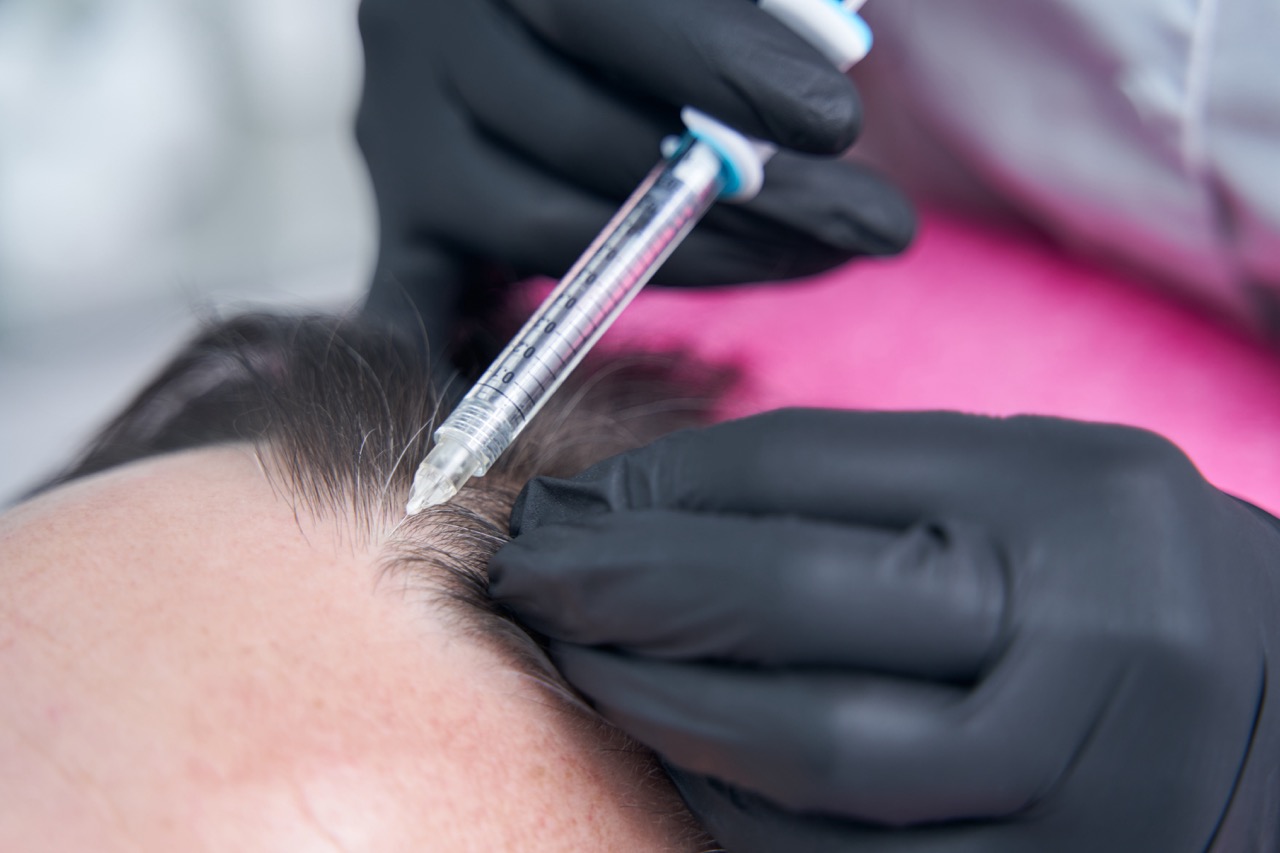The Role of Biotin and Supplements in Hair Regrowth
Hair thinning and hair loss can often lead people to search for solutions that promise to restore thickness and volume. One popular approach is turning to dietary supplements—particularly those containing biotin and other nutrients believed to support hair health. But do these supplements truly promote regrowth, or are they simply part of a broader support system for maintaining strong, healthy hair? Let’s take a closer look at biotin, the role of supplements, and how they fit into a hair restoration strategy.
What is Biotin and Why is it Linked to Hair Growth?
Biotin, also known as vitamin B7 or vitamin H, is a water-soluble B-complex vitamin that plays a key role in several metabolic processes. It helps the body convert nutrients into energy and is essential for the health of hair, skin, and nails. Because biotin is involved in the production of keratin—the protein that forms the structure of hair—it’s often marketed as a “must-have” for stronger, thicker locks.
Biotin Deficiency and Hair Loss
True biotin deficiency is rare, as the vitamin is found in many foods and is also produced by gut bacteria. When it does occur, symptoms can include:
- Thinning or brittle hair
- Hair breakage
- Skin rashes
- Weak nails
In cases of deficiency, increasing biotin intake can help reverse these symptoms, including hair thinning. However, for individuals with normal biotin levels, adding more of the vitamin may not necessarily result in faster or more substantial hair regrowth.
Do Biotin Supplements Promote Hair Regrowth?
While biotin is undoubtedly important for maintaining healthy hair, the evidence that taking extra biotin leads to new hair growth in individuals without a deficiency is limited. Many people report that their hair feels stronger or looks shinier after starting a biotin supplement, but these improvements often reflect better overall hair health rather than the actual regrowth of lost hair.
What Other Supplements May Support Hair Health?
Beyond biotin, several other nutrients and supplements are thought to support hair health and possibly regrowth. These include:
Vitamin D:
- Vitamin D deficiency has been linked to certain types of hair loss, including alopecia areata. Ensuring adequate levels can help create a healthier environment for hair follicles.
Iron:
- Low iron levels are a common cause of hair thinning, especially in women. Restoring iron levels through diet or supplements can improve hair density.
Zinc:
- Zinc plays a role in tissue repair and hair follicle function. A deficiency can lead to hair shedding, and supplementation can help restore balance.
Collagen:
- Collagen supplements provide amino acids that may support keratin production, potentially strengthening hair strands and reducing breakage.
Saw Palmetto and Other Botanicals:
- Some herbal supplements are thought to block DHT, a hormone linked to male and female pattern baldness. While more research is needed, saw palmetto is a popular choice among those exploring natural hair care solutions.
Combining Supplements with a Holistic Approach
Supplements can be a helpful component of a broader hair care regimen, but they’re rarely a standalone solution. Factors that also influence hair regrowth include:
Diet and Nutrition:
- A balanced diet rich in whole foods—such as lean proteins, leafy greens, fruits, and healthy fats—provides the building blocks for strong, resilient hair.
Scalp Health:
- Keeping the scalp clean and well-moisturized, and ensuring proper blood circulation, helps create an optimal environment for hair growth. Scalp massages, gentle cleansing routines, and the use of mild, nutrient-rich shampoos and conditioners are all beneficial.
Medical Treatments and Therapies:
- In cases of significant hair loss, supplements alone may not be enough. Combining them with proven medical treatments like minoxidil, low-level laser therapy, or even hair transplant surgery can deliver more noticeable results.
What to Keep in Mind When Using Supplements
Consult a Healthcare Professional:
- Before starting any new supplement, it’s important to speak with a doctor or dermatologist. They can check for underlying conditions, test for deficiencies, and recommend the most appropriate supplements for your needs.
Be Patient:
- Hair growth is a slow process. Even with proper nutrition and supplementation, it may take several months before you notice improvements.
Quality Matters:
- Choose reputable brands and read labels carefully. Some products may contain fillers or suboptimal forms of vitamins and minerals. Look for supplements that are third-party tested or certified.
In Summary
Biotin and other supplements play a supportive role in maintaining the health of existing hair and may help address hair loss caused by nutritional deficiencies. However, for individuals who don’t have a deficiency, supplements alone may not be enough to stimulate significant regrowth. A comprehensive approach—combining balanced nutrition, good scalp care, medical treatments, and stress management—offers the best chance of achieving thicker, healthier hair over time.

 English
English




















